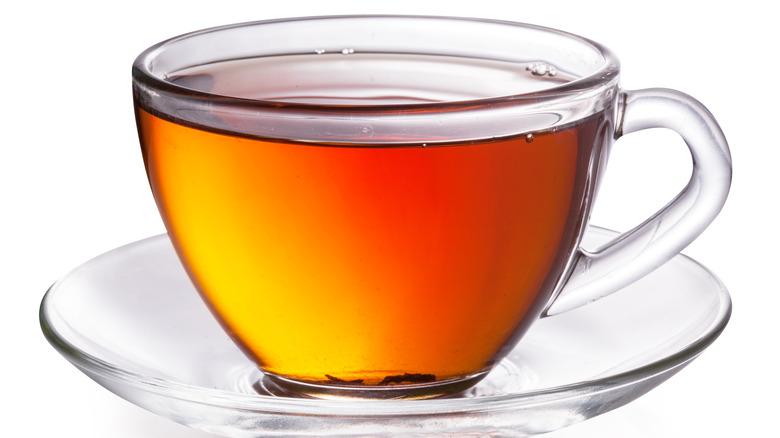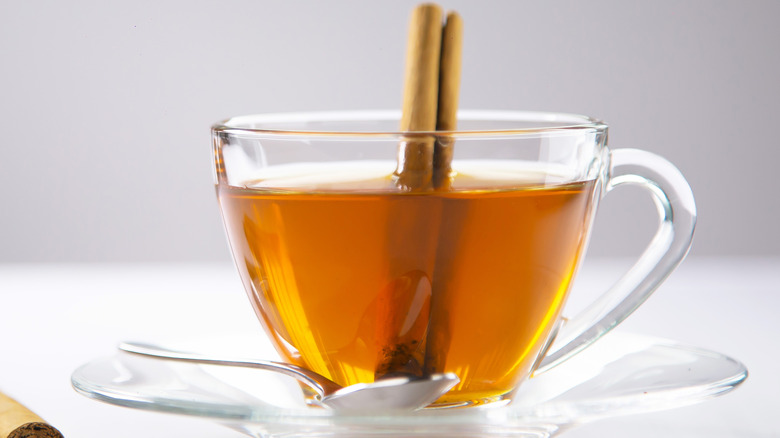You May Not Want To Use Tap Water To Make Tea, According To New Study
While coffee drinkers might push a button to deliver that morning caffeine jolt, tea drinkers have learned to appreciate the ritual brewing a great cup of tea requires. Although the tea leaves might be carefully chosen for their pristine flavors, the water is equally vital to that perfect sip. In a recent scientific study published in Environmental Science & Technology, tea drinkers might want to rethink putting tap water in their kettle — there might be a few unwanted ingredients lurking in there.
As the study notes, the "residual chlorine" in tap water, especially when it's heated, can create what's called "disinfection byproducts," which the CDC notes may be carcinogenic. While the Washington State Department of Health discusses that the addition of chlorine to disinfect water outweighs the side effects, the reality is that chemicals change when introduced to heat. If all of this information brings back nightmares from that high school chemistry class, do not fear the flame from the Bunsen burner. Basically, the study wants tea drinkers to be aware of the potential impact of using tap water to make tea. Although your cup of Twinings green tea, Earl Grey tea, and Lipton tea (aka the teas examined in the study) might taste the same as always, the discussion lies in the potential impact all those cups have on long-term health.
Brewing a flavorful cup of tea is all about the water
While tea drinkers can debate the benefit of using leaves over bags, the Environmental Science & Technology study points out that what water you use may be even more crucial. Speaking to Bon Appetit, Steve Schwartz, the founder and CEO of Art of Tea, reminds us that "98 percent of tea is water." Given its abundance, Schwartz recommended a filtered or spring water, which "will yield a clearer flavor and better overall cup."
Although a great cup of tea might start with water, it isn't the only flavorful element. Schwartz goes on to recommend choosing a proper vessel for steeping, carefully selecting ingredients, and skipping the microwave, which can be too harsh when trying to extract flavor from the delicate tea leaves. Overall, the most important part of a great cup of tea is the steeping process. Even though Schwartz acknowledges the "forgiving" nature of tea leaves, making tea is a kind of art. Whether the beverage is served from grandma's china teapot or sipped from your new "Mom of the Year" mug, tea is part enjoyment and part ritual.

